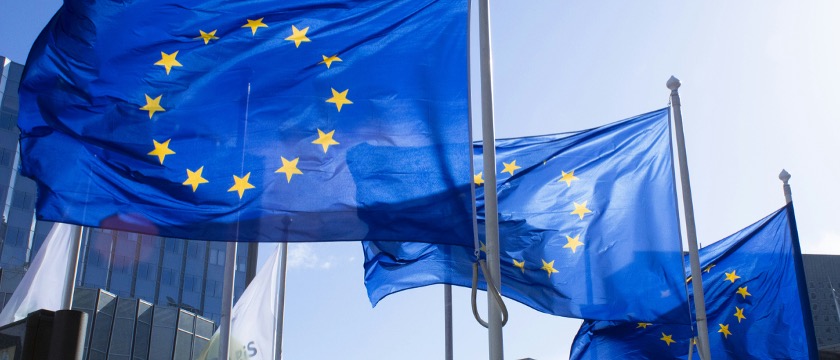EU Omnibus Update: Parliament Hearing Shines Light on Process Deficiencies

On May 13, the Committee on Legal Affairs (JURI) of the European Parliament convened a public hearing on reporting obligations to gather stakeholder perspectives on the changes to the Corporate Sustainability Reporting Directive (CSRD), the Corporate Sustainability Due Diligence Directive (CSDDD) and the Taxonomy Regulation proposed by the European Commission under the first Simplification Omnibus Package.
The central debate concerned whether the Commission’s proposals for a significant reduction in the scope of mandatory reporting and substantial content changes would achieve the targeted reduction in administrative burdens for businesses without compromising the regulations’ core objectives.
Swedish MP Jörgen Warborn (centre-right European People’s Party Group, EPP), the Parliament’s lead rapporteur on reporting obligations, reiterated his support for addressing concerns over over-regulations and for focusing on empowering rather than overwhelming businesses. Representatives from business advocacy groups Business Europe and SMEunited called for radical simplification, exceeding the changes proposed by the Commission.
Representatives of assurance providers (Accountancy Europe) and software and consulting firms shared practice-focused insights, emphasizing the availability and value of first CSRD reports as a basis for informed decisions on modifications. Importantly, best practices can illustrate the adoption of a risk-based approach and a focus on proportionality in line with the principles of the current regulations.
Key Regulatory Changes to the EU Omnibus Package
The European Commission intends to adopt a “quick-fix” delegated act addressing the uncertainties faced by Wave 1 companies not covered in the first Omnibus. This change would remove the requirement for additional sustainability information (e.g., anticipated financial effects under E1-9, E2-6, E3-5, E4-6 and E5-6; characteristics of non-employee workers under S1-7) to be disclosed for FYs 2025 and 2026 under the current CSRD phase-in approach.
The Commission also plans to release recommendations on the use of the Voluntary Reporting Standard for SMEs (VSME Standard) before the end of Q2.
EFRAG, the Commission’s technical advisor with the mandate to develop a simplified ESRS, plans to open the exposure draft for a for public consultation in late July. Simplification of ESRS (Set 1) will focus on the following:
- Simplification of the Double Materiality process and documentation requirements.
- Review of GHG emissions reporting boundaries.
- Reduction of horizontal documentation requirements.
- Improve readability and usability, including further alignment with the IFRS Sustainability Disclosure Standards.
- Substantial reduction in the number of mandatory datapoints, maintaining only relevant and decision-useful elements.
- Application of a principles-based approach to Policies, Actions, Targets (PAT) disclosures.
Stakeholder Consensus on CSRD and CSDDD Simplification
New political and economic environment: Corporate sustainability regulations supporting the EU’s Green Deal were developed in a less polarized political and environmental context. Their implementation now occurs within a new environment demanding a heightened focus on cost-effectiveness.
Room for simplification: Representatives from business (including SMEs), assurance providers, and consulting firms agreed that streamlining and clarifying requirements – alongside providing additional guidance – would improve the framework’s usability for preparers and the value of disclosed information for users. Notably, a European Commission’s representative addressed a common misunderstanding regarding duplicate reporting obligations under the CSDDD, clarifying that companies reporting under the CSRD face no additional requirements under the due diligence framework.
European framework aligned with global standards: Stakeholders expressed a preference for a distinct European framework underpinned by a double materiality approach, while simultaneously emphasizing the importance of further alignment with the IFRS Sustainability Disclosure Standards and recognizing the continued relevance of the GRI Standards.
Limited assurance guidance is of highest priority: Establishing a European standard for limited assurance is essential for rebuilding trust. The principles-based International Standard on Sustainability Assurance (ISSA) 5000, developed by the International Auditing and Assurance Standards Board (IAASB) could serve as a foundation. This should include clear guidance on assurance boundaries for third-party data, including value chain data.
Stakeholder Concerns on EU Sustainability Reporting Changes
Omnibus process: Several stakeholders have expressed dissatisfaction and concern regarding deficiencies in the Omnibus process and anticipate that the European Commission will need to conduct further analysis into the benefits and costs—for businesses and society—of the proposed changes. Modifications to both Level 1 legislation (CSRD and CSDDD) and Level 2 measures (ESRS and the Taxonomy Regulation) should undergo a comprehensive impact assessment.
Scope Reduction: The Commission’s proposal for a substantial reduction in the scope of mandatory reporting – largely redefined by a 1,000-employee threshold – is arguably the most critical point of contention. According to media reports, the Parliament’s lead negotiator on the Omnibus file, Jörgen Warborn, has raised the possibility of further limiting the scope to companies with more than 3,000 employees. Meanwhile, the European Central Bank (ECB) released an opinion on the Omnibus proposals recommending a 500-employee threshold for mandatory sustainability reporting, with simplified reporting requirements for companies with between 500 and 1,000 employees.
Increased harmonization of the scope of the EU’s corporate sustainability regulations is generally viewed as positive, provided it is underpinned by a clear rationale for thresholds and supporting evidence on costs and benefits.
Value-chain data caps to mitigate trickle-down impacts: The amount of sustainability information large businesses can request from companies in their value chain for reporting under the CSRD and meeting due diligence obligations under the CSDDD is currently limited to the disclosure requirements outlined in the ESRS for listed SMEs, as defined in the (draft) LSME Standard. According to a representative of European SMEs, the Commission’s proposal to lower these requirements to the level of the VSME Standard remains insufficient to address the conflict between smaller companies’ limited resources and larger companies’ demand for value-chain data.
The application of a risk-based approach to value-chain information emerged as an additional area in need of further clarification. This would help companies increase their focus on adverse impacts and risks.
Sector-specific standards: Several stakeholders expressed concern over the proposed removal of sector-specific standards.
EFRAG’s representative emphasized the importance of the reference to supplementary sector-specific disclosures in the VSME Standard:
Depending on the type of activities carried out by the undertaking, the inclusion of additional information (metrics and/or narrative disclosures) not covered in this Standard is appropriate in order to disclose sustainability issues that are common in the undertaking’s sector […] or that are specific to the undertaking, as this supports the preparation of relevant, faithful, comparable, understandable and verifiable information.
Benefits of quantitative vs qualitative information: Throughout the public hearing stakeholders expressed different views on the value of qualitative information. Notably, EFRAG’s representative emphasized the importance of qualitative, contextual information while acknowledging some scope for reducing and simplifying narrative disclosure requirements.
CSRD – a comprehensive or complex framework? The European Parliament public hearing affirmed the critical tension between the need for comprehensive, detailed sustainability information to ensure comparability and decision-making relevance, and the desire to reduce the perceived complexity of reporting requirements. A simple reduction in the volume and granularity of data points will not necessarily guarantee a reduction in effort and costs for preparers, as less-specific disclosures require interpretation. Insights from Wave 1 companies will prove invaluable in addressing these challenges.
| OMNIBUS TIMELINE (2025-2026) | |
| End-Q2 2025 | European Commission recommendation on use of VSME Standard |
| End-Q2 2025 | European Commission adoption of Delegated Act removing 2026-2027 phase-in disclosure requirements for Wave 1 companies |
| End-Q2 2025 | European Commission adoption of amendments to the Taxonomy Disclosures Delegated Act, the Taxonomy Climate Delegated Act, and the Taxonomy Environmental Delegated Act |
| Late July 2025 | ESRS Simplification Exposure Draft (ED) by EFRAG |
| August – September 2025 | Public consultation on ESRS Simplification ED by EFRAG |
| 31-Oct-25 | EFRAG’s ESRS Simplification Proposal delivered to the European Commission |
| 31-Dec-25 | Member States transposition of “Stop-the-Clock” Directive |
| 31 December 2025 (TBC) | Adoption of “Content” Directive |
| 1-Jan-26 | Implementation of amendments to the Taxonomy Disclosures Delegated Act, the Taxonomy Climate Delegated Act and the Taxonomy Environmental Delegated Act |
| 31 December 2026 (TBC) | Member States transposition of “Content” Directive |
| At the latest six months after the entry into force of the Omnibus | European Commission adoption of Simplified ESRS under Delegated Act |
Science-Based Targets: Evolving Standards and Global Adoption
Latin America’s Sustainability Reporting Gains Momentum
Rare Earth Minerals: The Hidden Backbone of the Energy Transition
California Climate Laws Update: CARB Workshop and SB 261 Pause
Energy Management Systems: Global Trends and Best Practices
2025 Sustainability Reporting: Global Trends in Framework Adoption
Getting Materiality Right: Challenges, Risks, and Best Practices
Spain Introduces Mandatory Climate Disclosure
Global Sustainability Pulse: Key Trends in Corporate Strategy and Disclosure
EU Sustainability Reporting: Parliament Backs New CSRD Thresholds

